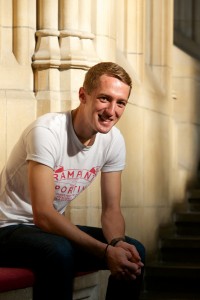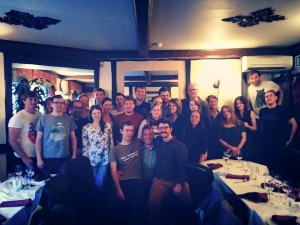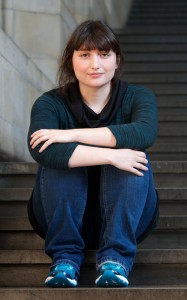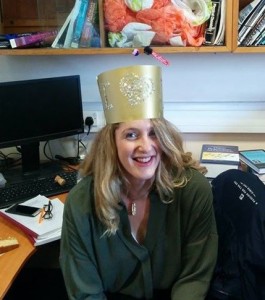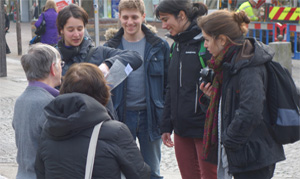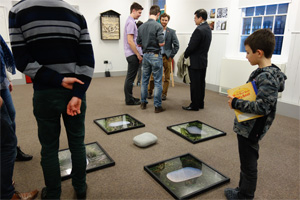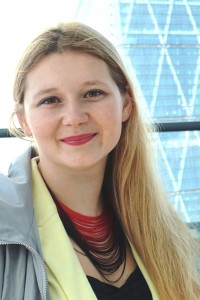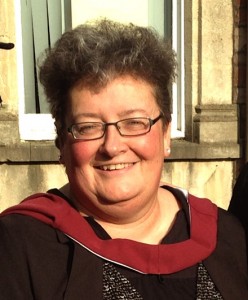 Tessa Coombes is a first year postgraduate researcher in the School for Policy Studies. Her research will explore housing policy and agenda setting during the Bristol Mayoral election next year. The research stems form a desire to develop a better understanding of the role local elections and new models of local governance have on framing policy agendas.
Tessa Coombes is a first year postgraduate researcher in the School for Policy Studies. Her research will explore housing policy and agenda setting during the Bristol Mayoral election next year. The research stems form a desire to develop a better understanding of the role local elections and new models of local governance have on framing policy agendas.
I’ve always enjoyed writing, even if I don’t always do it well. I find it a creative process, that brings to life all those thoughts and ideas, commentary and debate that whirl around in my head, but frequently have no real outlet. Writing has been a part of every job I’ve had, in different ways and for very different audiences. I’ve had to adapt and develop my own style to respond to the demands of others, and to work to other people’s deadlines that often serve to stifle my own creative process. But, nonetheless, I enjoy writing. I write for fun and have my own blog. I also write contributions to local news websites and magazines, such as Bristol 24-7 and The Bristol Cable, and for the professional press like the Planner Magazine. All of these provide an opportunity to write about things of interest to me, sometimes related to my research but often not, where I can freely express my opinion. That’s part of the fun of writing.
Over the last couple of years I have had to get used to a different kind of writing, one that is more controlled and evidenced, that fits with particular conventions. Last year, when doing an MSc, back in the academic world for the first time in over 20 years, I had to complete formal assignments and a dissertation. This involved a form of writing that was entirely different to anything I have done in a long time. Then this year, embarking on my PhD, I have once more had to develop my style further into academia, a style change I find both challenging and rewarding. Challenging because my inclination is to keep things simple, use simple language and keep away from jargon. Rewarding because when it works and I can combine simplicity with complexity there is a real feeling of achievement.
My approach to writing is to see it as a creative output, something that occurs naturally for me in response to learning. After all, what’s the point of all that learning if you can’t share it with other people? A blank page, for me, is an opportunity to articulate and share, rather than something to be scared of. Writing is like creating a painting, there are different layers that are needed to build the picture, which on their own make little sense, but together they can evolve into something worthwhile, a masterpiece that others will enjoy. I view writing my PhD in a similar way. There are layers that I will write at different times, continuously throughout the process, that need to come together into a coherent story at the end. There’s a complexity to this writing process, in terms of debate and argument, analysis and detail. But there’s also a simplicity about it, where carefully crafted pure and simple arguments can be brought together into quite a simple story. A story that will grab the readers attention, and will slowly but surely take them through the complexity in a way that makes sense. In a way that brings them to your conclusions with a sense of understanding and agreement.
There’s lots of advice to students about how to write, much of which suggests you set yourself a daily writing target, which you then stick to no matter what. I can see why the discipline of this is important and why it must work for many people, but I’ve tried this approach and for me the writing that comes from it is stifled, boring and constrained. If I’m not in the mood to write, then forcing myself to write just doesn’t work. I’ve written assignments like that and when I go back to read them I can tell that it was forced rather than creative thoughts that made up the report or essay. The work is dull and it’s lacking in energy, even if the points made are the right ones, the style is very different. I prefer an approach that feels more creative, one that has routine, but is based on my preferences, rather than someone else’s (there’s a good discussion here on creating routine when writing, drawing on the work of Ronald Kellog).
When I first begin the process of writing something new I try to avoid the clutter and distraction of notes generated from my reading. I start with a blank page. I then try to form my thoughts on what I have read into a short discussion of key arguments, issues and themes. I do this without the clutter of referencing and acknowledging who said what and how. I do it from memory, from thoughts that occur to me from reading my notes and I do it when I am feeling creative and able to write fluidly. For me this works, most of the time! Of course, sometimes the creativity is just not there, it’s beyond my grasp, I can’t think where to start or how to structure my thoughts. I’ve come to recognise those times and instead I do something else with my time, like more reading, organising files, and literature searching. All the time continually mulling over the story I want to tell and trying to work out how I can construct it. I may also use this thinking and reflecting time to write something else, something less constrained, where I can write freely without the confines of academic convention – something like a blog maybe! Eventually, often after much reflection, I am ready to write and can go back to the writing that needs to be done.
The challenge of writing is an integral part of any PhD. The only advice I have on writing is to do what works for you, try different approaches and look back on what’s worked when you’ve written things before. But above all, enjoy it, it’s a precious opportunity to express yourself, articulate your thoughts and tell the story of your PhD for others to enjoy.


